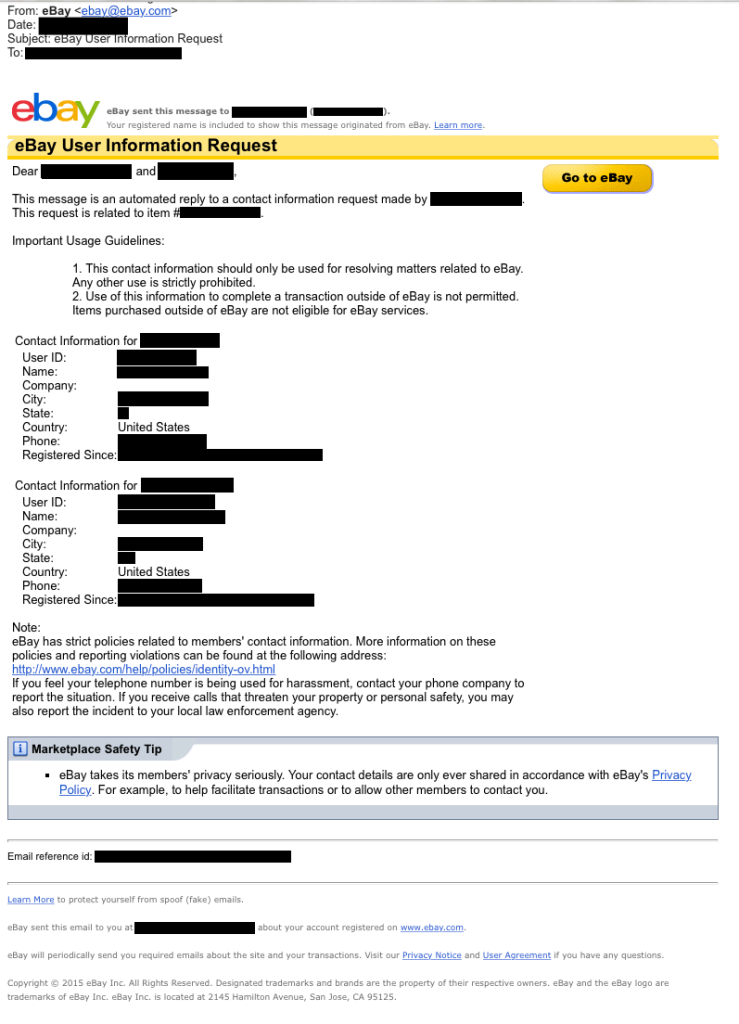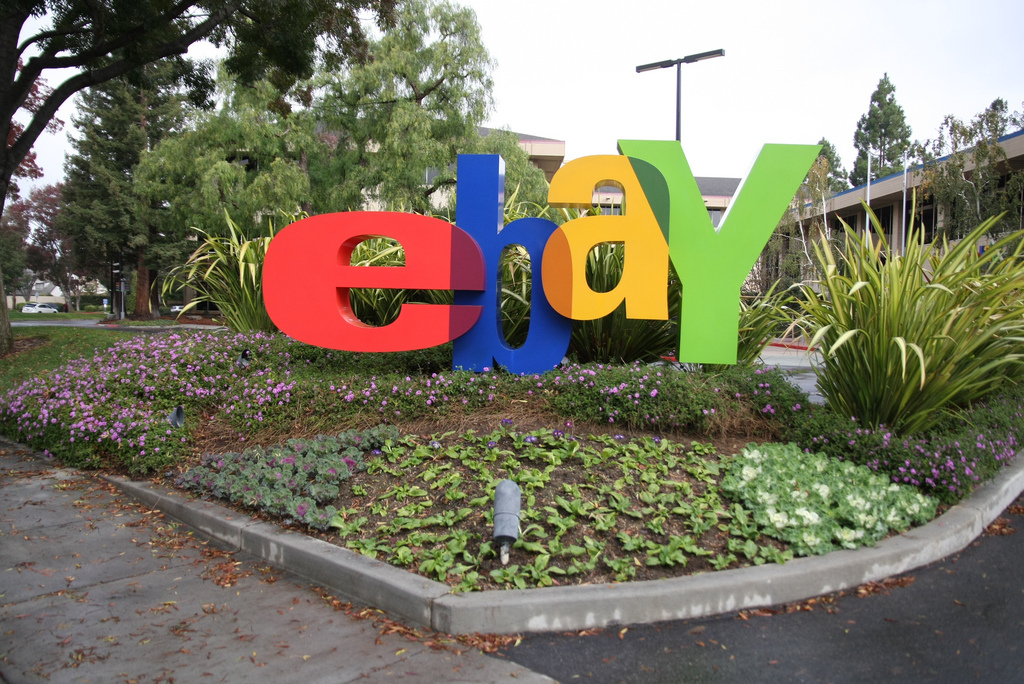eBay Will Send Your Full Name, Location, And Phone Number To Any Auction Bidder Who Asks Image courtesy of Kazuhisa OTSUBO
Maybe this is well known to frequent eBay sellers, but A. does this full time and no customer had ever requested his information before. Here’s the e-mail that he received. The information that’s redacted is his city and phone number provided to eBay, as well as the bidder’s own contact info. This included his full name, too, but did not include either party’s street address.

While neither party necessarily knew that the information that the other had provided to eBay was up-to-date or even real, A. was still uncomfortable and worried. Like many eBay sellers, he runs his business out of his home. Especially if the seller lives in a small town or has an uncommon name, it’s very easy to find someone’s street address. It’s even easier if the seller is listed in the phone book and you have their home address.
It would be a safe assumption that the item up for auction was somewhere in his home, and he began to worry that someone might be on their way to steal the item–which was out of sight, but also highly portable.
The item was rare and valuable enough (the final bid had four figures) that someone breaking into his home was a reasonable fear. Putting it in a bank vault wouldn’t prevent someone from coming to visit while A. was or wasn’t home.
It’s awkward to discuss this situation without mentioning what the item was, or its approximate price, but A. is worried that eBay could shut down his account or otherwise punish him for complaining about this privacy issue publicly. Yet he wants to warn other eBay sellers that this could happen to them, too.
After A. brought this issue to us, we took it to eBay. We just wanted to know why this is an okay thing to do. Releasing the contact information for a winning bidder in an auction or the purchaser in a fixed-price listing is necessary, but why are they releasing sellers’ contact information to bidders when it’s early in the auction?
Typically the seller shouldn’t have anything to worry about, as we only allow members of eBay to request contact information. We allow any transaction partner (including a bidder) to request the buyer/seller’s contact information. This includes a phone number, and the address. This is for all members of the site, and something we’ve found be very helpful overall. There’s not a way to opt out of this as we expect it of everyone on the site, namely because we’re only a venue and don’t buy or sell the item directly.
eBay does acknowledge that users could misuse this information, especially phone numbers, and instructs members to…contact their phone company or the police if they have any issues.
Please be aware that we can’t take action on communications that happen outside the eBay system, so if you do have an issue with your trading partner’s phone call, we recommend you contact your phone company to report any harassment. If you receive calls that threaten your property or personal safety, you might also want to report the incident to your local law enforcement agency.
Well, okay, but is it possible to opt out and keep random bidders from getting your contact information? No. eBay won’t let you do that. You can use a service like Google Voice or Skype to mask your phone number, giving that number to eBay instead.
Want more consumer news? Visit our parent organization, Consumer Reports, for the latest on scams, recalls, and other consumer issues.


